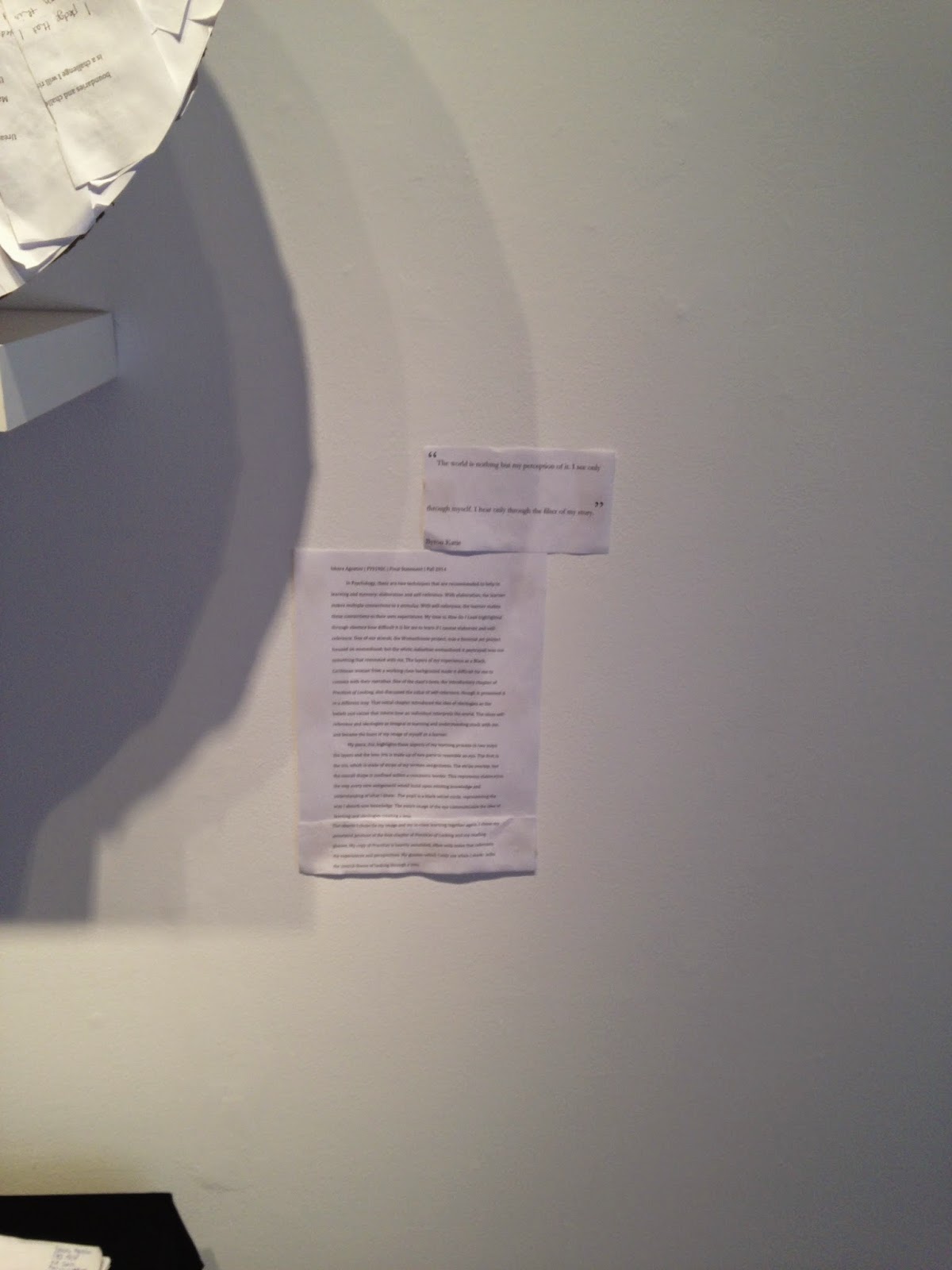“The world is nothing but my perception of it. I see only through
myself. I hear only through the filter of my story.”
-
Byron Katie
In
Psychology, there are two techniques that are recommended to help in learning
and memory: elaboration and self-reference. With elaboration, the learner makes
multiple connections to a stimulus. With self-reference, the learner makes
these connections to their own experiences. My time in How Do I Look highlighted through absence how difficult it is for
me to learn if I cannot elaborate and self-reference. One of our stimuli, the
Womanhouse project, was a feminist art project focused on womanhood; but the white,
suburban womanhood it portrayed was not something that resonated with me. The
layers of my experience as a Black, Caribbean woman from a working class
background made it difficult for me to connect with their narrative. One of the
class’s texts, the introductory chapter of Practices
of Looking, also discussed the value of self-reference, though it presented
it in a different way. That initial
chapter introduced the idea of ideologies as the beliefs and values that inform
how an individual interprets the world. The ideas self-reference and ideologies
as integral to learning and understanding stuck with me, and became the basis
of my image of myself as a learner.
My
piece, Iris, highlights these aspects
of my learning process in two ways: the layers and the lens. Iris is made up of
two parts to resemble an eye. The first is the iris, which is made of strips of
my written assignments. The strips overlap, but the overall shape is confined
within a concentric border. This represents elaboration the way every new
assignment would build upon existing knowledge and understanding of what I
knew. The layers create a wide aperture,
the centre of which is a black velvet circle, representing the way I absorb new
knowledge. The entire image of the eye communicates the idea of learning and
ideologies creating a lens.
The objects I
chose tie my image and my in-class learning together again. I chose my
annotated printout of the first chapter of Practices
of Looking and my reading glasses. My copy of Practices is heavily annotated, often with notes that reference my
experiences and perspectives. My glasses–which I only use when I work– echo the
central theme of looking through a lens.








No comments:
Post a Comment